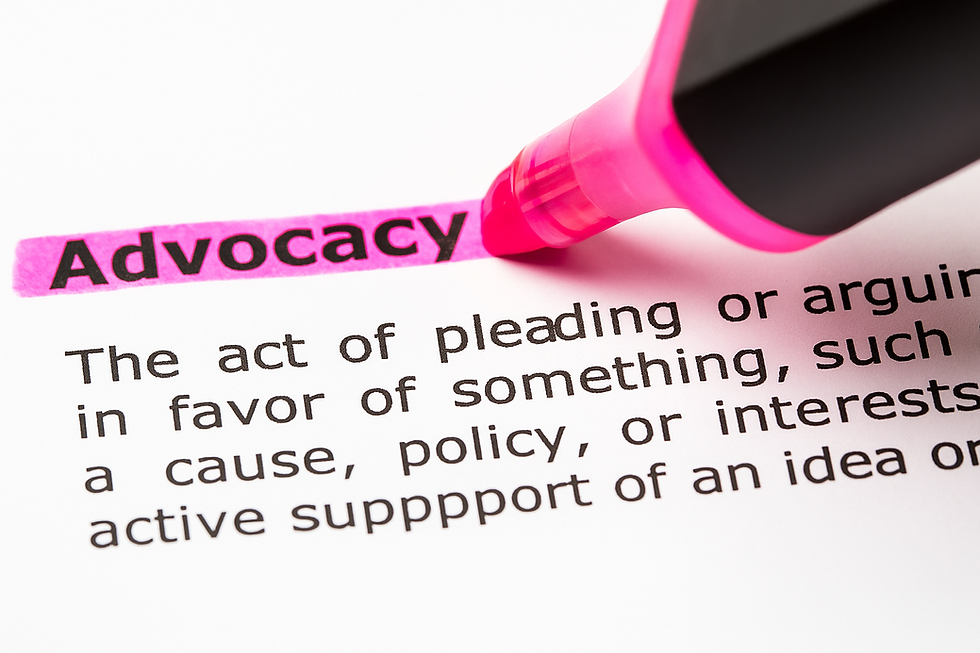Understanding Emotional Safety: Inside and Outside the Therapy Room
- Deborah Marks
- Jul 30, 2025
- 3 min read
Emotional safety is the foundation of all healthy relationships. Whether you are sharing a vulnerable thought with a friend or working through trauma in therapy, the feeling of being emotionally safe (seen, heard, and respected without fear of judgment or harm) is what allows you to show up fully and authentically.
In the therapy space, emotional safety is a core element of effective healing. But its importance extends beyond the therapy room. Let’s explore what emotional safety really means, why it matters, and how we can foster it both in and out of a professional setting.
What Is Emotional Safety?
Emotional safety means feeling secure enough to express your true thoughts and emotions without fear of being criticised, dismissed, manipulated, or punished. It’s about knowing that your boundaries will be respected, your voice will be heard, and your experiences will be validated.
When we feel emotionally safe:
We can share openly without fear of shame
We can disagree without fearing conflict or rejection
We can make mistakes without being belittled
We can connect more deeply with others
This kind of environment is essential for psychological healing, self-exploration, and healthy relationships.

Emotional Safety Inside the Therapy Room
In therapy, emotional safety is not just beneficial; it is essential. Without it, it becomes difficult (or impossible) for a client to open up, explore wounds, or build trust. A trauma-informed therapist works carefully to:
Create a non-judgmental, confidential space
Respect your pace and boundaries
Validate your experiences and emotions
Provide consistent, compassionate support
Clients may come into therapy carrying past experiences where they were silenced, dismissed, or harmed when they tried to speak their truth. Rebuilding trust takes time. As therapists, we don’t rush the process. Instead, we walk alongside you, building safety moment by moment.
This can look like:
Checking in regularly to see how you're feeling in the process
Inviting feedback and adapting the pace
Supporting autonomy by offering choices in how sessions are structured
Naming when things feel difficult, awkward, or vulnerable
Emotional Safety Outside of Therapy
Outside of therapy, emotional safety is just as important, yet often overlooked. Relationships that lack emotional safety can lead to chronic stress, low self-worth, anxiety, or a sense of loneliness, even if they appear functional on the surface.
In day-to-day life, emotionally safe environments involve:
Clear communication and healthy boundaries
Mutual respect and accountability
Space to express emotions without fear of blame or ridicule
A culture of curiosity, not judgment
If you’re unsure whether a relationship or environment feels emotionally safe, ask yourself:
Can I be myself around this person?
Do I feel heard and respected?
Am I afraid of how they’ll react if I express a need or boundary?
Do I walk away from conversations feeling drained or empowered?
If the answers raise concerns, it may be time to reflect on what changes are needed to restore or protect your wellbeing.
How to Create More Emotional Safety
Whether you're a client, a parent, a partner, or a friend, we all have the power to cultivate emotional safety in our relationships. Here are some ways to start:
Be present and listen actively – without interrupting or trying to fix
Validate others’ feelings – even if you don’t fully understand them
Apologise when needed – and mean it
Respect boundaries – both yours and others'
Stay open and curious – not reactive or defensive
Therapy can be a safe place to learn and practice these skills, especially if past experiences have made emotional safety feel unfamiliar or difficult to trust.
Why It Matters
When emotional safety is present, we can grow, connect, and thrive. We can take emotional risks, knowing that we are supported. We can process painful experiences and move toward healing. And we can build deeper, more authentic relationships with ourselves and others.
In therapy, emotional safety allows us to do the courageous work of healing. In life, it allows us to live more fully and freely.
If you’re seeking a therapy experience where emotional safety is prioritised every step of the way, you’re not alone. At Hope Prevails, we are here to walk alongside you with compassion, professionalism, and care.



Comments